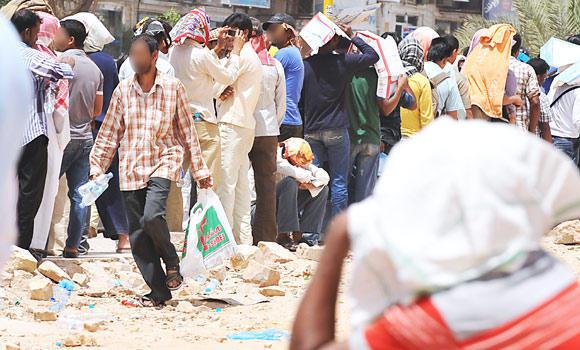
Jeddah, Sep 13: A new electronic crowd management system adopted by the Ministry of Haj has been instrumental in drastically reducing the number of pilgrims overstaying their Umrah visas this year, Haj Minister Bandar Hajjar has said.
“Most of the 5.13 million pilgrims who came for Umrah this year have left the Kingdom. Only 11,000 of them now remain in the country and we hope they leave before the Haj season,” the minister said.
He said the same system would be applied to this year’s Haj pilgrims in order to prevent them from overstaying in the country seeking jobs. Outstaying Haj and Umrah visas has been one of the major problems faced by the Saudi government over the past years.
Hajjar said the new electronic system has reduced the phenomenon of foreign pilgrims being cheated by Umrah service providers. The system helps pilgrims monitor the services offered to them by companies before their arrival in the Kingdom.
“The number of complaints we received from pilgrims during this Umrah season was far less than in previous years,” he said.
The electronic grouping and disbursement system also solved the problem of pilgrims’ overcrowding at airports, he pointed out.
Pilgrims were sent to the airport only after ensuring that they held confirmed bookings on return flights. Violators of the system, including Umrah service agents and airlines, were held responsible for providing stranded pilgrims with hotel accommodation, food and return flights.





Comments
Add new comment